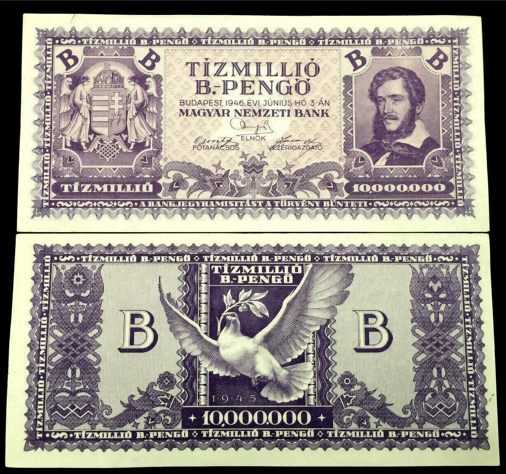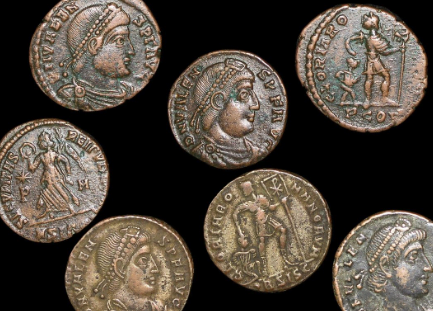Currency collection, Banknote collection, Coin collection
In a digital age where virtual currencies and digital transactions dominate, the art of collecting physical money may appear as a forgotten pastime. However, for passionate history enthusiasts and numismatists, currency collection remains an enthralling hobby that offers a glimpse into the rich tapestry of human civilization. Currency collection, also known as numismatics, involves the acquisition and study of various forms of currency, including banknotes and coins, from different countries and historical periods. Let us embark on a journey into the world of currency collection, exploring the allure of banknote and coin collecting, and uncovering the stories they tell.
Banknote Collection: Preserving Monetary Artifacts
One of the most popular aspects of currency collection is banknote collection. Banknotes, also known as paper money, hold a long and intriguing history, representing the economic and political landscapes of nations. Collecting banknotes allows enthusiasts to explore the intricate designs, security features, and historical significance embedded in these monetary artifacts.
Banknotes serve as a reflection of a nation’s cultural heritage, with each note telling a unique story. From the elaborate patterns and symbols adorning the bills to the portraits of influential figures, banknotes offer a visual journey through time. Whether it’s the iconic United States dollar featuring distinguished presidents or the euro showcasing diverse architectural motifs, each banknote carries a piece of a nation’s identity.
The challenge in banknote collection lies in acquiring rare and valuable pieces. Some banknotes, due to their scarcity or historical importance, become highly sought after by collectors worldwide. These rare banknotes often command a premium price and require dedicated efforts to obtain. However, the thrill of hunting down these elusive treasures adds to the excitement of the hobby.

Furthermore, banknote collection goes beyond mere acquisition. Serious collectors delve into the historical context behind each banknote, examining the political, social, and economic events that influenced its creation. The study of banknotes helps enthusiasts gain a deeper understanding of different cultures and the stories behind the nations they represent.
Coin Collection: Unraveling the Fascinating World of Metal Currency
Another captivating facet of currency collection is coin collection, also known as numismatics. Coins, the earliest form of standardized currency, boast a history spanning thousands of years. Collecting coins allows enthusiasts to explore the evolution of monetary systems, technological advancements, and the artistic expressions of various civilizations.

Coins provide a tangible connection to the past as they have been utilized in trade and commerce for centuries. From ancient Greek drachmas to Roman denarii and modern-day commemorative coins, each piece represents a unique chapter in human history. The study of coins not only offers insights into economic systems but also sheds light on the cultural, political, and religious aspects of the societies that minted them.
Coin collectors appreciate the aesthetic appeal of these miniature works of art. The designs on coins often feature intricate engravings, portraits of monarchs or leaders, and symbolic motifs that represent the values and aspirations of a particular era. The meticulous craftsmanship and attention to detail make coins a visual delight.
Similar to banknote collection, rarity plays a significant role in coin collecting. Rare and limited-edition coins, such as those with minting errors or historical significance, become highly prized by collectors. The scarcity and condition of coins greatly influence their value, and collectors eagerly seek out these hidden gems to add to their collections.
Beyond their value as collectibles, coins also serve as educational tools. They provide a tangible link to historical events, allowing collectors to study the rise and fall of empires, explore cultural exchanges, and understand the evolution of art and technology over time. Coin collection is, therefore, not only a hobby but also a means to preserve and learn from the past.
The Thrill of Currency Collection: A Never-Ending Quest
Whether one focuses on banknotes or coins, currency collection offers a thrilling and never-ending quest for knowledge and discovery. The hobby fosters a sense of curiosity, encouraging enthusiasts to explore different cultures, historical events, and artistic expressions through the lens of currency.
Currency collectors often engage in research and networking to expand their knowledge and connect with fellow collectors. Numismatic societies, online forums, and auctions serve as platforms for enthusiasts to share their passion, exchange insights, and even trade or sell rare pieces. The community aspect of currency collection adds to the excitement as collectors bond over their shared fascination with these historical artifacts.
Moreover, currency collection is a versatile hobby that caters to individuals with diverse interests. Some collectors focus on a specific period, such as ancient coins or modern banknotes, while others aim to assemble a comprehensive collection representing different countries and eras. The flexibility allows collectors to tailor their pursuit according to their preferences, making it an accessible and engaging hobby for people of all backgrounds.
Currency collection also offers the opportunity for financial investment. While the primary motivation for most collectors is the passion for history and culture, rare and valuable banknotes or coins can appreciate in value over time. However, it is important to approach currency collection with a balanced perspective, emphasizing the joy of the hobby rather than solely focusing on potential financial gains.
In conclusion, currency collection, encompassing both banknote and coin collecting, is a captivating hobby that combines history, art, and culture. The study and acquisition of banknotes and coins provide a window into the economic and political landscapes of different nations and periods. From the intricate designs on banknotes to the historical significance of coins, each piece of currency tells a captivating story. Currency collection offers a never-ending quest for knowledge and discovery, fostering curiosity, community, and a deep appreciation for the rich tapestry of human civilization. So, whether you are a history enthusiast, an art lover, or simply curious about the world around you, consider embarking on the captivating journey of currency collection.
Remember, currency collection is a personal journey, and the enjoyment of the hobby comes from exploration, learning, and connection with fellow collectors. Have fun, appreciate the stories behind the currency, and let your collection reflect your passion for history and culture.
Q: Is currency collection a profitable investment?
A: While rare and valuable banknotes or coins can appreciate in value over time, it is important to approach currency collection primarily as a hobby and a means of exploring history and culture. While some collectors may make financial gains, it is not guaranteed, and the market can be unpredictable. It is advisable to focus on the joy and knowledge gained from currency collection rather than solely seeking financial profit.
Q: How can I get started with currency collection?
A: Getting started with currency collection is relatively easy. Begin by identifying your area of interest, whether it’s banknotes or coins, and then decide on a specific focus, such as collecting banknotes from a particular country or collecting coins from a specific era. Next, familiarize yourself with reliable sources of information and join numismatic societies or online forums to connect with experienced collectors who can provide guidance and advice.
Q: Are there any resources available for learning about currency collection?
A: Yes, there are numerous resources available for learning about currency collection. Books, online articles, and websites dedicated to numismatics can provide valuable insights into the history, designs, and collecting strategies. Additionally, attending coin and currency shows or visiting museums with numismatic exhibits can be an immersive way to enhance your knowledge and appreciation of the currency.
Q: Can I display my currency collection?
A: Absolutely! Many collectors take pride in displaying their currency collections. There are various ways to showcase your banknotes and coins, including specialized albums, display cases, or framed collections. Proper storage and handling techniques are important to preserve the condition and value of your currency items, so ensure you use acid-free materials and avoid excessive exposure to light, moisture, and other damaging elements.
Q: Can I trade or sell my currency collection?
A: Yes, trading or selling currency items is common among collectors. Online platforms, auctions, and numismatic societies often provide opportunities for collectors to trade or sell items from their collections. However, it is essential to conduct thorough research and consult with experts to ensure fair pricing and reliable transactions.